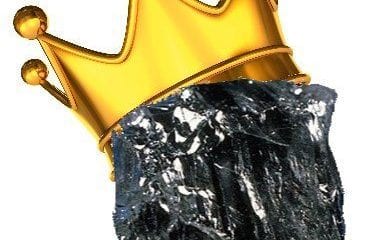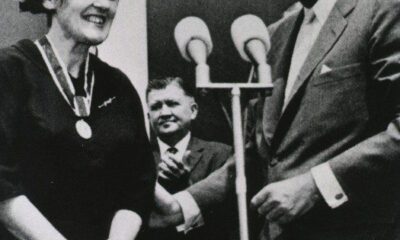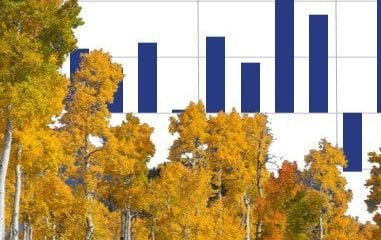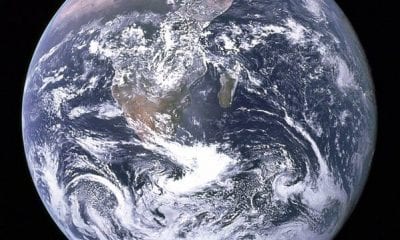

Here’s the good news: The percentage rate of change in global carbon emissions in 2014 was zero. It didn’t go up. That’s the first time in the record books that the world economy grew but carbon emissions didn’t. Here’s the bad news: The average global temperature has been hotter every month since February of 1985 than the 20th century average for any given month. We’re talking 360 consecutive months of warmer-than-average temperatures.
Here’s the really bad news: If we continue to extract fossil fuels – coal, oil, gas – at the current pace, we will not be able to live on the planet by mid-century.
We must leave 80 percent of our coal, oil and gas in the ground, if civilization is to survive.
Here’s the science: Despite the climate deniers, the consensus of people who study this field professionally say that if we raise the temperatures of the planet more than two degrees Celsius (that’s about 3.6 degrees Fahrenheit) human life as we know it will not be possible.
» Read more about: Dethroning Fossil Fuels: The Rise of the New Abolitionists »


We hear so much about “big government” burdening “job creators” with excessive “red tape” and “bureaucracy,” but that rhetoric isn’t new. Even in the decades after the New Deal, when workers had more power than they do today, and the government was seen as society’s protector, private profit too often conflicted with the public interest.
Take the sleeping drug thalidomide, which caused thousands of infant deaths and birth deformities across Europe in the early 1960s. Before being linked to those defects, the drug reached the desk of Dr. Frances Oldham Kelsey, a medical officer at the U.S. Food and Drug Administration. Dr. Kelsey saw something odd in the drug trials performed by the pharmaceutical company that manufactured thalidomide, and requested more tests. The company, with profits at stake, bullied her to approve the drug, even threatening a lawsuit.
Meanwhile, evidence from Europe began to pour in that thalidomide was toxic if taken during pregnancy.
» Read more about: How Dr. Frances Kelsey's 'Red Tape' Saved Thousands of Infants »


I’ve always believed that democracy was the best form of government because people can change it. And like a lot of us, I was taught that the American form of democracy was the model that should be imitated by nations across the planet. Especially ingenious was the system of “checks and balances.” This arrangement means that no one branch of government can singularly decide a political course without the consent of the others.
This much-praised system was adopted to prevent the re-emergence of an autocracy. But checks and balances also worked to keep the practice of slavery alive up until the Civil War. And in the wake of abolition, when corporations became the dominant form of business organization, the same systems were used to exploit the labor force. Even as the country’s wealth grew, the gap between rich and poor widened. It took more than half a century of effort and the devastation of the Great Depression before important reforms like a minimum wage,


If you take your kids to the beach this summer, expect a gritty ride home. California has turned off most of the showers that people use at state beaches to clean the sand off their kids before the long ride home. Then, of course, you get to clean the sand out of your car. All this aggravation saves about 18 million gallons of water a year, according to the state.
In a drought like this one, it makes sense to conserve as much water as possible, wherever we can. So you would think we would be trying to stop some big water users too. Like Chevron. This mega-corporation sells 21 million gallons of treated polluted water a day to the Cawelo Water District, which, according to the Los Angeles Times, provides water to 90 Kern County farmers.
Where Chevron gets the water,


Every year, every quarter, every month, the conventional economists either praise the increase in Gross Domestic Product (GDP) or anxiously wring their hands because the economy has not expanded enough. Expansion requires two key elements: a constant search for the lowest possible wages and an unending supply of raw materials – particularly fossil fuels, but also fertile soil and fresh water, and sometimes, creatures who live on the earth and in the seas.
While there are still places on the planet where people will take any job they can get, the ability to extract more energy resources gets riskier, and the environment’s capacity to absorb more waste is fast approaching zero. Reaching the outer limits of expansion threatens all of life on the planet. That reality is why many people are now calling for an “ecological civilization” as an alternative to more exploitation and extraction, one that offers another pathway for human civilization to take.


More Americans believe in angels than in climate change. Still, a poll released earlier this year indicated that more Americans than ever now think that climate change is happening, that it is caused by human activity and that world leaders have a moral obligation to do something about it.
So why are we getting so little action? If a large majority of people actually thinks our only home, the Earth, suffers from human behavior, then shouldn’t our personal and public actions reflect that reality? Oh, sure, lots of people drive electric cars, but lots more drive SUVs. I know that California has implemented a “cap-and-trade” program that will limit the future growth of carbon in the air, but the state has not banned fracking, which wastes water and hurts our air quality. And I know that the federal government has been setting higher goals for vehicle mileage —
» Read more about: A Change in the Climate of Climate Change? »


My wife Susan and I have just returned from a three-week trip to the East Coast. The journey included a week or so in Washington, D.C., which Susan had never seen and which I have not visited in a couple of decades. Our purpose was to witness the graduation of a nephew, but we also had time to visit the various monuments that cover the core of the city. These memorials invariably quote some of the masterpieces of our heritage, a reminder of the values that ground the American experiment in democracy.
We left Los Angeles as Baltimore’s social upheaval was erupting – during the same week that marked the 23rd anniversary of the so-called Rodney King riots here. It felt appropriate that on our first night, following dinner in a gentrifying neighborhood of the Capitol, a friend took us to the Martin Luther King Jr. Memorial. He said it was best seen at night,


The religious spring festivals of Passover and Easter are behind us. We’ve paid our taxes. Congress has passed another bill to give the top two-hundredths of one per cent another windfall. I think a big-picture look at the structure of this economy might help us all take a deep breath. If my guess is correct, we’ll need it for the work ahead. This kind of economy stands on three legs: raw materials, cheap labor and as little regulation from government as possible.
Raw materials were the reason why Europe’s empires stumbled across the Western hemisphere in the first place. Looking for an easier route to the profitable spice markets of the East Indies, the Spanish found the West Indies and began a centuries-long exploration and exploitation of everything it uncovered. Extraction of natural resources – from tomatoes to gold to, one day, black gold – led those powers to exploit South and Central America as well as Africa,
» Read more about: Three Legs of the Economy: The Past Is Prologue »


Sometimes the conventional narrative the media tell about a news story feels so wrong I can’t stand it — but I don’t know why until the story’s over. The recent coverage of the labor dispute at the West Coast ports — including Los Angeles and Long Beach — is a case in point. News reports focused on the long, drawn-out negotiation process as an economic disaster waiting to happen, and blamed the entire situation on those dastardly workers and their unions.
The narrative included several key arguments: A union slowdown at the ports was causing a backlog of shipping containers carrying everything America buys, putting all importers at risk and causing a plague on American shoppers. There would be long-term economic damage to our region as a consequence. With the eventual opening of the widened Panama Canal, shippers would skip the West Coast and head to other ports.